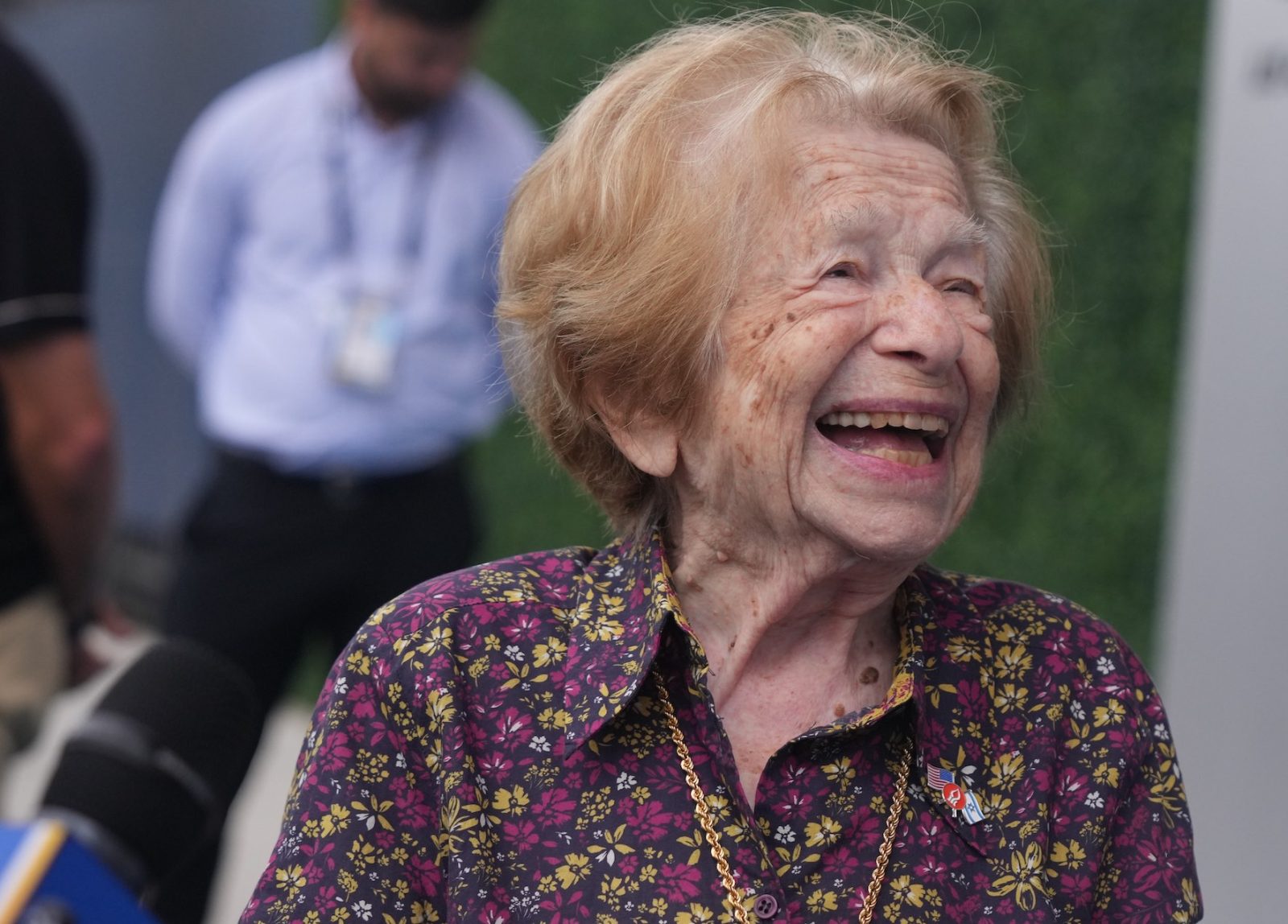HEALTH – Sexuality and communication, Laura Bedarida recalls Dr. Ruth

“She was truly a remarkable figure, a pioneer in many ways. She opened the subject of sex to the world. Back then it was a taboo, and Dr. Ruth made television and radio programs about it. Thanks to her, today we have the opportunity to practice our profession.” So Laura Bedarida, who grew up in an Orthodox family in Livorno before moving to Israel after high school and identifies herself as a “couple and sexual consultant,” reminisced about Dr. Ruth Westheimer who passed away recently at 96.
Known as Dr. Ruth, Westheimer became a celebrity as America’s sexual therapist in the 1980s. Born Karola Ruth Siegel to Orthodox Jewish parents in Wiesenfeld, Germany, she was ten years old when she was put on a train to Switzerland as part of the Kindertransport, the children’s transport that during the nine months prior to the outbreak of WWII brought thousands of refugee children to Great Britain from Nazi-controlled territory.
It was January 5, 1939, and her father, Julius, had been taken away from their home six weeks earlier. Her mother Irma and grandmother Selma offered her a unique chance to survive. “Perhaps it is precisely from what she went through,” Bedarida reflected, “that came the strength with which she carried forward her approach to life. She always emphasized how important the joy of living was, how having a positive attitude can make a difference.”
Dr. Ruth was not only positive but also carried admirable strength. Upon arriving at the orphanage in Heiden, eastern Switzerland, she was safe but felt disconnected from her surroundings. For this reason, she later joined the Haganah, the Jewish paramilitary organization precursor to the Israel Defense Forces, and changed her name from the German Karola to Ruth, retaining the central initial “K” in the hope that her parents, if alive, could more easily find her. It was a way to move forward without forgetting her roots.
“People change, yet remain strong in what they have been,” continued Bedarida. “For example, today I am no longer religious; I am deeply attached to Israel, where I studied sociology and anthropology, two subjects that gave me an important perspective, a guide on how to view the world. Later, I worked in marketing for several years in major companies. But what really matters to me is helping people. I’m used to my friends coming to me for advice, and I’ve always enjoyed listening to and helping others—it has always made me feel good.”
“Four years ago, I started studying: first personal counseling, then sexual counseling, a topic that has always interested me and is not talked about enough. Then I moved on to couples counseling, thinking it would help me have more tools.” It all starts with communication. It doesn’t make sense to immediately address sexual issues, as Dr. Ruth always emphasized. First, there needs to be an ability to talk to each other, to look each other in the eye. If there is no dialogue, entering the bedroom and finding functional intimacy is difficult.
“If there isn’t enough communication, no connection is created,” added Bedarida. “If you don’t talk to each other, everything is difficult, and Dr. Ruth was invaluable in this regard. People used to go to psychologists, and perhaps seek help for sexual issues, but they didn’t talk about it openly. Being able to ask questions is not obvious; people don’t know how to talk about what doesn’t work; they don’t even say it to their partner, and often they don’t know what they like or dislike. Incredibly, masturbation is still a taboo topic.”
Even in a couple, there can be a lot of loneliness, and it is precisely this topic that Dr. Ruth has devoted much energy to in recent years. But it wasn’t a new topic. Already in 1945 in her diary, she wrote: “I live with 150 people, and I am alone.” In her diary, she also expressed her desire for a friend and prayed, in a note the following week, to find someone “who loves me and understands me.”
